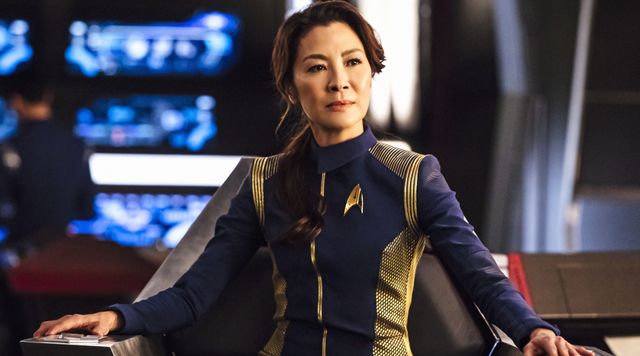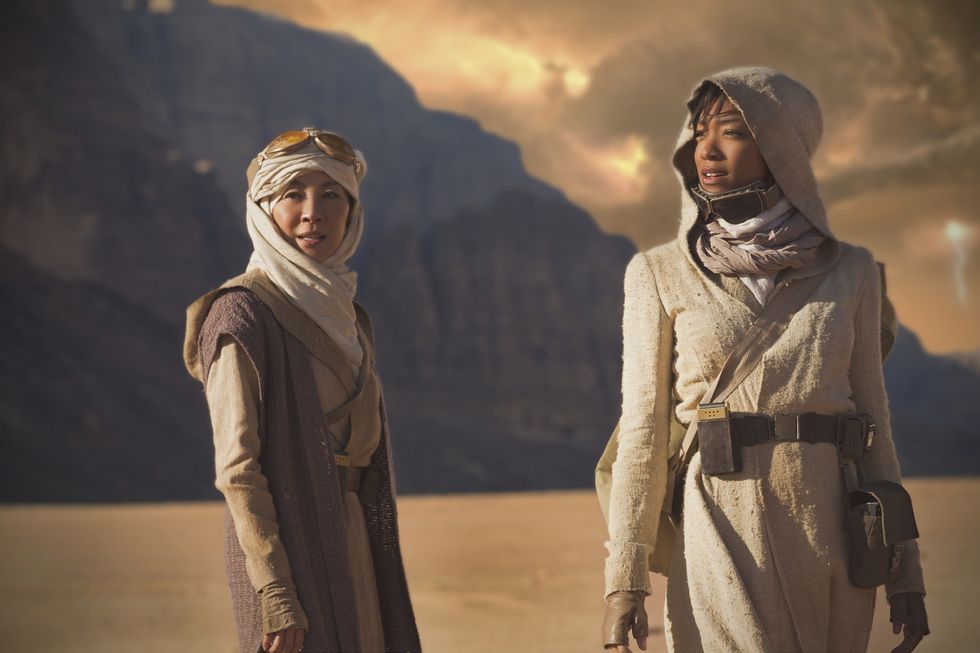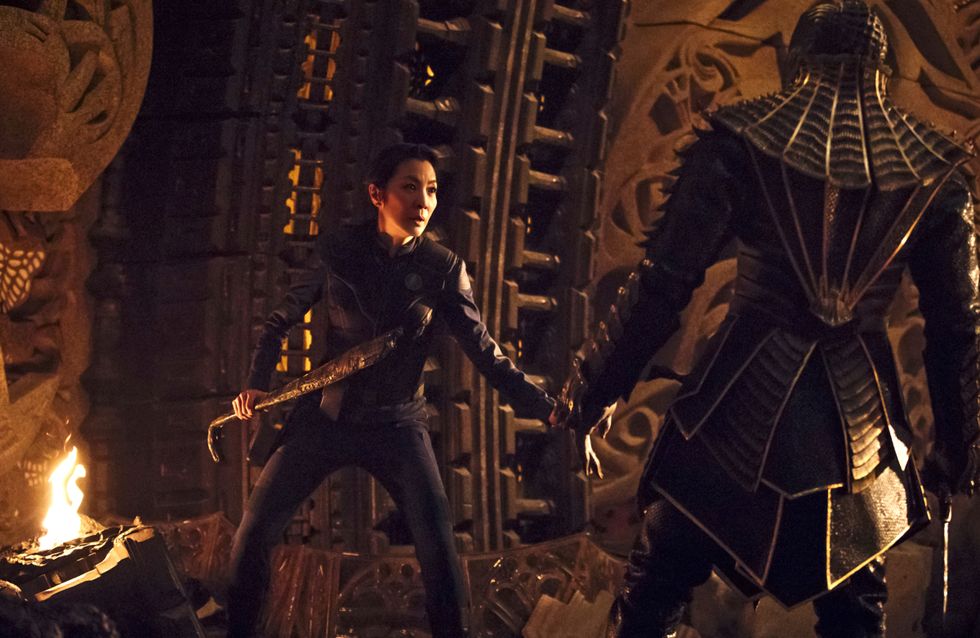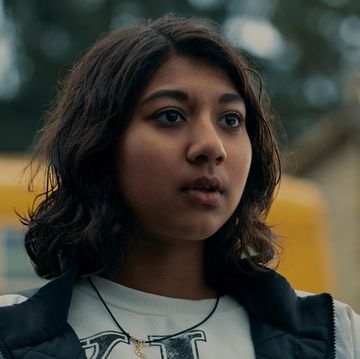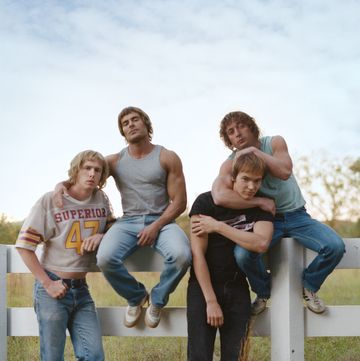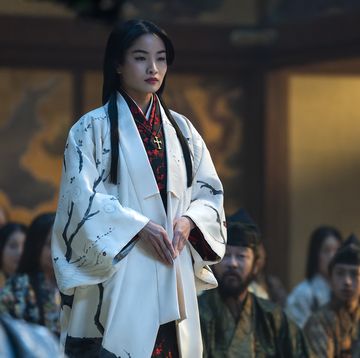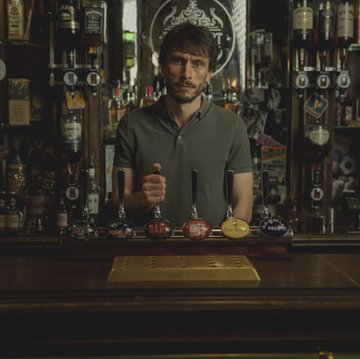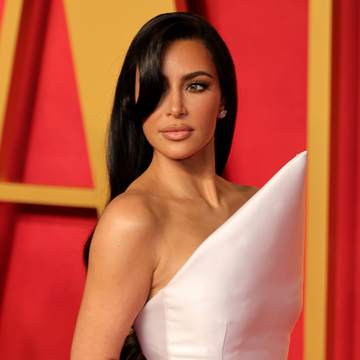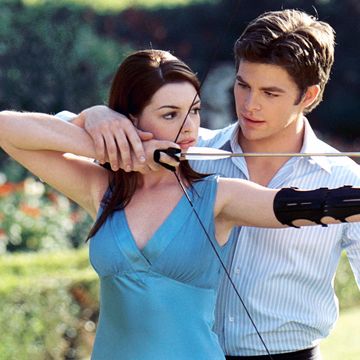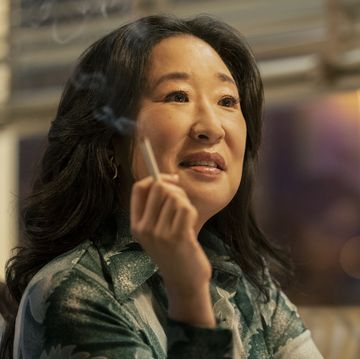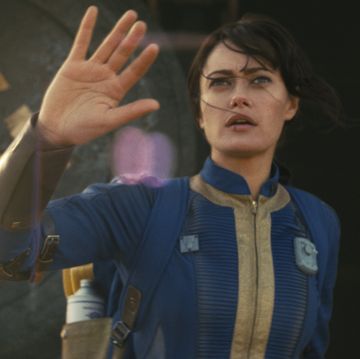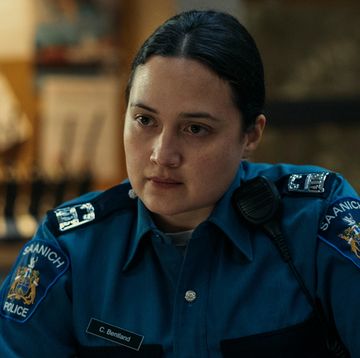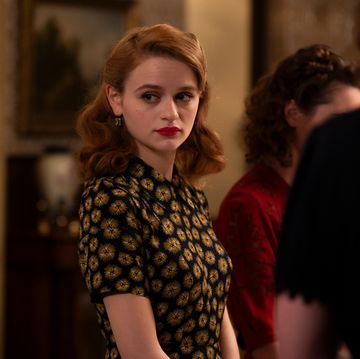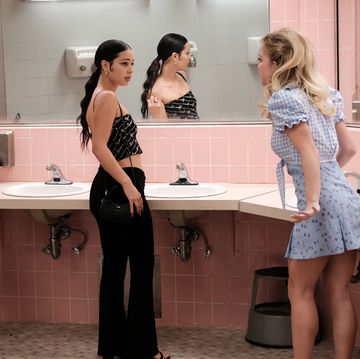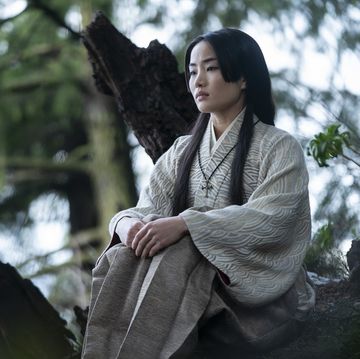Star Trek: Discovery made its long-awaited debut on CBS All Service on Sunday night. The newest iteration of the interplanetary sci-fi franchise warranted and earned more than the usual "new series" buzz (and pushback), though: With its two female leads, both women of color, the show looks to be more diverse than any of its predecessors—or, indeed, many other on-air offerings. The Walking Dead's Sonequa Martin-Green plays First Officer Michael Burnham and the legendary Michelle Yeoh is Captain Philippa Georgiou of the USS Shenzhou.
ELLE.com spoke to Yeoh about her role in this brave new Trek, what went into every last detail of her pioneering character, and what we can expect from her fashionable matriarch in Crazy Rich Asians.
When I first saw the Discovery trailer, I felt moved hearing an Asian-accented voice in the context of such a beloved show. Why was the accent so important for your character?
Star Trek being all about diversity, they do have all the different accents coming across. I don’t have a really strong accent. I have a twinge of a Trans-Atlantic accent—it’s not English, it’s not American. It’s a little bit more Asian. It was important for me to make Captain Georgiou very distinct, because Kirk [played by William Shatner] and Jean-Luc Picard [played by Patrick Stewart] were distinctive in the way they sounded. So I had to make Captain Georgiou stand out on her own. I wanted to make her universal in the sense that you couldn’t place her. She doesn’t have that American twang or upper-class English accent. I wanted to show that in the future we would be so united, [intermingled, and well-traveled] that you don’t end up with one very distinct accent.
Were you always a Star Trek fan? What else did you want your character to be?
As a child I always loved looking into space. I grew up watching Star Trek, Lost in Space, and Mork and Mindy. I was in an amazing science fiction movie called Sunshine, where it was more grounded. And then Morgan and Babylon AD. But this is the first time I’m in space and in the future, which takes on a whole different dimension. As a child looking up at the stars, I really wanted to believe in different species out in the universe. So being part of this franchise and having my own ship to command is pretty cool—your wildest dreams come true. That’s what I love about being in the movies or TV series: stepping into these amazing, imaginary worlds can be tangible and organic at the same time.
Captain Georgiou is a veteran. She’s seen war, but she has great hope and humanity and compassion. She’s an explorer who looks at the stars and looks forward to seeing new systems and universes being created. At the same time she believes that we have an opportunity to be united as we wander through this amazing galaxy.
Star Trek is being lauded for having two women of color in lead roles—did that draw you to this production? Have you seen a change in the roles available to Asian women?
It seems like a never-ending battle. I must say that because I started my career in the east—not that we are that much further ahead—but there seems to be more opportunity, otherwise I wouldn’t have been in the movies that I have on my resumé. In one sense I’ve never been in a minority because I grew up and lived in Asia, so coming here and being told I’m a minority is like: No, no way. How did that happen? And here we are still fighting and battling so much for equality on so many different levels. But it seems like it’s global that we are all fighting the same battle and it’s a battle worth fighting for. This show will explore all that, and I hope that with the great storytelling, the fans will be proud of it.
Can we talk about some of your earlier roles and your experience of being a woman in the industry then?
If you look at the Hong Kong history of filmmaking, there was a period where in the '60s there were stronger, feminine roles, and then there was a lull. It’s a cycle. When I started in the film industry in the early '80s, it was predominantly the guys who were having a great time, being the heroes and the protectors of these poor little damsels in distress. In my first movie, I played the damsel in distress. And the second movie, Yes Madam, came along and they said, "Would you like to try something different?" I said I would love to be able to do an action film, but I wanted to be the action figure. The good thing was that they had nothing to lose and I was a newcomer, and they were always eager to try something original because the audience was so hungry. And it was like, Why not? It’s worth a shot. That’s how I first broke into that fighting arena. But we did make a very conscious effort to show that when she fought, it was because she was fighting for her life or she had a good reason. And then when she wasn’t fighting, she’s a lady. It was very conscious to keep the feminine. It was like silk and steel.
Your Crazy Rich Asians character, Eleanor Young, has a different fighting strategy.
She is devious. The thing is, if you are very smart at it, you’re not devious—you’re just doing the right thing and getting your own way. It was so delicious to play that kind of role because I don’t want my audience to be complacent. I want you to be like, "Oh my God, did she really do that?" This role is very important because it’s the first time in 26 years—since Joy Luck Club—that we have an all-Asian cast [for a Western movie]. It’s important. We keep fighting, but we also have to have the right stories and all the right people who believe in us. And the Asian community is just as important. With Warner Bros. and people like Nina Jacobson, the producer, they understood and were willing to listen. There’s a big culture difference and there’s so much to learn and to enjoy.
The Crazy Rich Asians characters are all about fashion and conspicuous consumption. Are you high fashion in your daily life?
I’m a little bit casual and lazy. But I do have my great moment when I hit the red carpet. You have to. It’s good to have a balance of both sides. I’m not going to walk out in a ball gown every day—it’s too much work. Other than that I’m in my jeans and shirts and sneakers.
One thing I used to be not very good at it, but I realized it makes a heck of a difference: I face mask every day. Sunblock. I work hard, I’m going to look after myself real hard too. And because I travel so much, I drink a lot of water. I also think if you are a happy person you automatically have a really nice glow. I have a mantra that I say to myself: I’m sorry, please forgive me, thank you, and I love you. That's directed to yourself, and your environment, and to everything. If you can have that and you can do that, you find your own peace, and that’s very important.
You're very involved with the world around you—what are the causes you're interested in right now?
I think these big issues really are everyone’s responsibility. Don’t think, Oh well, that problem is so big. What can I do? How can I make a difference? We’re each a grain of sand but together we make a beautiful beach. I champion safety [as a Road Safety Ambassador for SAFE STEPS]. And now I’m the Goodwill Ambassador for UNDP—we are trying to highlight the 17 sustainable development goals and concentrating on eradicating gender equality and eradicating poverty. Not just women, but also men can do this together.
This interview has been condensed and edited.
